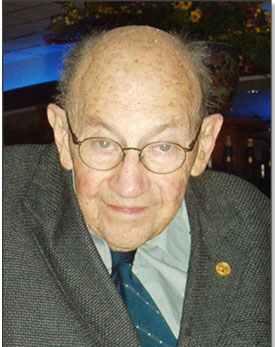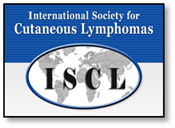ISCL AWARDSAND SPECIAL LECTURES
ISCL LIFETIMEACHIEVEMENT AWARD
In recognition of outstanding contribution to the science and care of patients with cutaneous lymphomas
Criteria:
- Preferentially retired or near retirement
- Made significant and impactful contribution in the field of cutaneous lymphoma
- Consistently produced high-impact research spanning his or her field
- Been recognized by peers for outstanding leadership qualities in his or her field
Process:
The ISCL BOD will propose nominees and thereafter will vote.
Past Recipients:
2024 Martine Bagot, MD, PhD
2024 Richard L. Edelson, MD
2024 Alain H. Rook, MD
2024 Gary Wood, MD
2020 Richard Hoppe, MD
2020 Madeleine Duvic, MD
2016 Rein Willemze, MD
2013 Wolfram Sterry, MD
2010 Eric Vonderheid, MD
THE HERSCHEL ZACKHEIMLECTURESHIP
The Herschel Zackheim lectureship of the ISCL was established in 2006 to be delivered annually at a meeting of the ISCL. The award is determined by the Board of Directors of the ISCL and is supported from operating funds of the ISCL.
The Herschel S. Zackheim lectureship Award is awarded in honor of Dr. Herschel S. Zackheim, a clinical professor emeritus at UCSF, who has pioneered the discovery of treatments for patients with cutaneous lymphoma. The selection committee, formed by the officers of the ISCL, chooses the recipient based on several criteria. The awardee should have:
- Consistently produced high-impact research spanning his or her field
- Contributed to research that will aid our understanding of lymphocyte- or lymphoma-related biology
- Contributed to research that will be expected to improve treatment for lymphoma patients
- Been recognized by peers for outstanding leadership qualities in his or her field
- 2024: Wing C. (John) Chan, MD, Professor, Department of Pathology, Dr. Norman and Melinda Payson Professor in Hematologic Cancers, City of Hope Medical Center. Building Human peripheral T-Cell Lymphoma Models for Biological and Therapeutic Investigations
- 2020: Elías Campo, MD, PhD Hospital Clinic of the University of Barcelona, Spain; Spanish coordinator of the International Cancer Genome Consortium. Principle & practice or method for classifying lymphomas (how why when). At 4th World Congress of Cutaneous Lymphomas, Barcelona, Spain
- 2006: Ronald Levy, MD, Professor and Chief, Division of Oncology, Stanford University School of Medicine. Immunotherapy of T- and B-cell lymphomas
- 2007: Jay Berzofsky, MD, PhD, Chief, Vaccine Branch, NCI, NIH. IL-15: Roles in Vaccine Development and T- Cell Function
Herschel S. Zackheim received his BA from New York University (NYU) in 1937, his MD from University of Michigan in 1942, did his internship at NYU and completed his Dermatology residency at Wayne State University in 1947. He was on the clinical faculty of Wayne State from 1955-1964, Stanford from 1966-1971 and University of California at San Francisco (UCSF) from 1971-2005. During his time at UCSF, he was Director of both the psoriasis and CTCL clinics as well as maintaining a clinical private practice in Redwood City.
Dr. Zackheim’s contributions to the care of cutaneous lymphoma patients are immense and enduring. He explored the use of topical steroids in MF as early as 1968 (Arch Dermatol 97; 165-172, 1968) and followed up with his years of clinical experience with these agents in 1998 (J. Clin Dermatol 1998: 1(4): 15-20, Arch Dermatol 1998; 134: 949-54) and 2003 (Dermatol Ther 2003; 16: 283-7), establishing the efficacy of these agents for early patch stage MF. Dr Zackheim pioneered the use of topical chemotherapy for MF, introducing topical nitrosureas in 1972 (Arch Dermatol 106; 177-182, 1972) and following this with studies that assessed the absorption, stability and safety of topical BCNU. He published the 10 year (J Am Acad Dermatol 1983: 9: 363-374) and 15 year (J Am Acad Dermatol 1990; 27: 802-10) experience with topical BCNU (Carmustine), establishing the safety and efficacy of this agent as a standard therapy for patch/plaque MF. Dr. Zackheim published several articles on the safety and efficacy issues of topical mechlorethamine beginning in 1973 (Arch Dermatol 107: 429-430, 1973). Dr Zackheim continued his entire career to explore new potential treatments for MF/SS. He is credited with the use of low dose methotrexate for SS and MF (J Am Acad Dermatol 1989; 21: 757-62, J Am Acad Dermatol 1996; 34: 626-31, J Am Acad Dermatol 2003; 49: 873-8) and of publishing on the potential use of a related drug, piritrexim, for MF in 1992 (Arch Dermatol 1992; 128: 561-2).
Dr. Zackheim has demonstrated his acumen as a clinician in the care of patients with cutaneous lymphoma in his published descriptions of the many variants of MF (J Am Acad Dermatol 2000: 43: 793-6.including hypopigmented MF (J Am Acad Dermatol 6: 340-345; 1982), MF presenting in childhood and adolescence (J Am Acad Dermatol 1987; 17: 563-570, J Am Acad Dermatol 1997; 36: 557-62), granulomatous MF (Am J Surg Pathol 1988; 12: 83-95) and mimicers of MF (J Am Acad Dermatol 2202; 47: 914-918), long before these findings were common knowledge. He catalogued the prognosis of the various stages of MF/SS patients seen at UCSF in a seminal article (J Am Acad Dermatol 1999; 40: 418-25) and emphasized the difference in prognosis of patch vs. plaque stage disease, publishing with Drs. Kashani-Sabet, and McMillan a modification of the current staging system to include the potential for separation of patch and plaque disease defined by histology (J Am Acad Dermatol 2001; 45: 700-6.). Dr. Zackheim also championed oncologic assessments and endpoints in the clinical trials of MF/SS and challenged studies that did not include rigorous response criteria and/or active controls or did not utilize intention to treat analysis. He is an author on 149 peer reviewed articles including the most recent one on the Revisions to the Staging and Classification of MF/SS published in 2007 (Blood 10;1182, 2007). He is also the editor of the textbook, Cutaneous T-cell Lymphoma: Mycosis Fungoides and Sezary Syndrome published by CRC Press in 2005, his year of retirement from UCSF.
Dr. Zackheim has been the recipient of many honors for his work in the care of patients with cutaneous lymphoma. He was on the initial Executive Committee of the International Society for Cutaneous Lymphomas from 1992-2000. He was named Practitioner of the Year by the Dermatology Foundation in 1986, San Francisco Dermatology Practioner of the Year in 2000 and received a Certificate of Appreciation by the International League of Dermatologic Societies in 2004. The San Francisco Dermatologic Society established the Herschel Zackheim lectureship on Cutaneous Oncology in 1996.
Dr. Zackheim died at home in Menlo Park on March 3 at age 94. His birthday was July 27, 1914.

2015 ISCL ANNUAL LECTURE Held in honour of Marie-France Demierre
Lecturer: "Update on WHO 2015 Classification on Cutaneous Lymphomas," Rein Willemze
June 8, 2015, at the ISCL Annual Meeting at the 23rd World Congress of Dermatology, Vancouver, Canada
Resume of Marie-France Demierre
Marie-France Demierre was a highly regarded clinician, researcher, teacher, mentor, colleague and friend.
Dr. Demierre was internationally recognized for her clinical expertise in the management of melanoma and CTCL. She worked at the forefront, participating in numerous multicenter trials of new therapies for advanced melanoma and for CTCL.
Dr. Demierre was internationally recognized for her clinical expertise in the management of melanoma and CTCL. She worked at the forefront, participating in numerous multicenter trials of new therapies for advanced melanoma and for CTCL.
After completing medical school at McGill University in 1995, Marie-France arrived at Boston University to do a Skin Oncology Fellowship under the direction of Dr. Howard Koh. After completion, she returned to her native country of Montreal, only to be recruited back to head the program after Dr. Koh left to become the state's public health commissioner. For 13 years she directed the Skin Oncology Service, rising to the rank of Full Professor in 2008. She cared for patients with melanoma and cutaneous lymphoma, ran the photopheresis program at Boston University, and was a teacher and mentor to medical students, dermatology residents, and her fellows. She was most proud of her collaboration with the Cutaneous Lymphoma Foundation on quality of life issues for cutaneous lymphoma patients, and her work with the Southwest Oncology Group in melanoma prevention. She was very active in the Women's Dermatologic Society (WDS), and served on its board of administrators.
Dr. Demierre passed away on April 13, 2010, after a sudden and unexpected illness. Her birthday was March 6, 1967.

